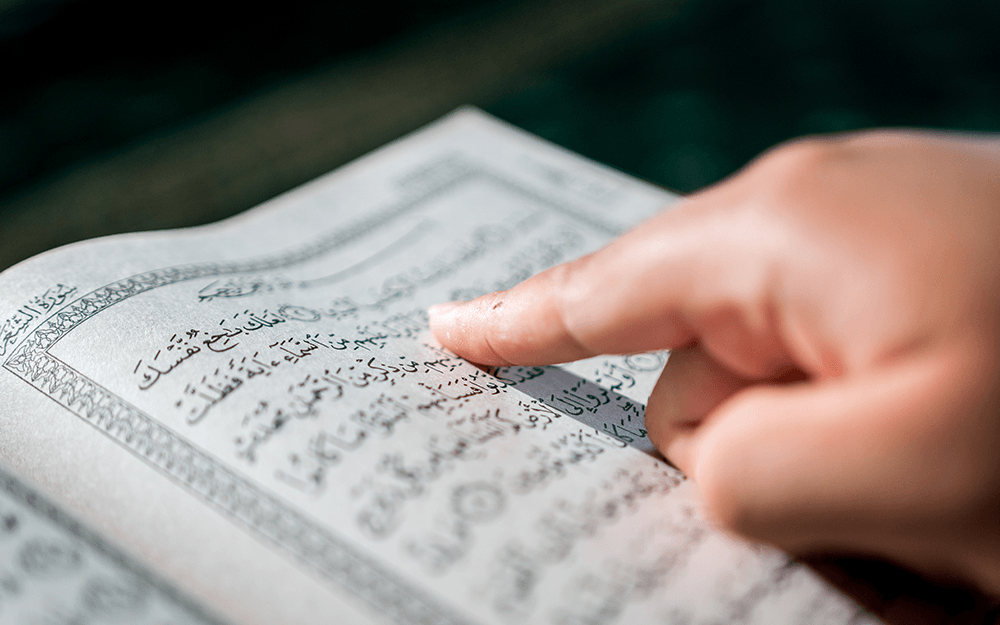
The Tilawat of the Quran signifies more than encountering Arabic words for themselves. For thousands of millions of Muslims worldwide, this practice represents an intensely spiritual exercise. All the words and every syllable bear significant importance alongside ageless revelations. Through Tilawat, the lips move, but more important, we need our hearts to listen and our souls to engage. To recite the Quran for a Muslim means experiencing personal direct dialogue with Allah (SWT). It generates both peacefulness and divine comprehension.
Meaning of Tilawat?
Definitions and Meanings
“Tilawat” describes an Arabic vocabulary that signifies reading aloud in sequence or ordering of words or following others in sequence. Within the Islamic religion, the Tilawat of the Quran designates a system to recite the Holy Quran in its original Arabic language. But what we see on the surface only shows part of the story. Numerous scholars explain that a complete understanding of the Qur’an means you read respectfully, then embrace the meaning within and practice it every day.
The root word “ت ل و” (Tā-Lām-Wāw) from which Tilawat originates, meaning both following and accompanying. The meaning of performing Tilawat goes beyond reading the Quran because you actually follow everything from beginning to end. Numerous people believe Tilawat symbolizes the act of closely following someone else in their footsteps. In their recitation of the Quran, Muslims trace the legacy of Prophet Muhammad (PBUH), who represented the Quran in human existence.
The Qur’an contains multiple instances of the concept of Tilawat. As an example, Allah (SWT) states within Surah Al-Baqarah 2:121:
“Those to whom We have given the Book recite it with its true recital. They are the ones who believe in it.”
This verse explains that real believers recite the Word of God with their entire being because they do Tilawat with hearts and lives beyond mere vocal utterances.
The Prophet (PBUH) used to recite the following verse to his followers to show his quality of Tilawat:
“Reciting (tilawat) to them His verses and purifying them and teaching them the Book and wisdom.” (Surah Al-Jumu’ah 62:2)
Our discussion about Tilawat has to address this multi-component action. It combines reading with reflective thought and ultimately leads to the transformation of behavior under divine illumination.
Benefits and Significance of Reciting in Islam
The Psychosocial Effects
The tilawat of Quran is incomparable to any other experience. Something enters the deepest parts of your soul. Strong emotional reactions to Tilawat are common. Sometimes tears and certain feelings will choke your heart and thoughts. It provides mental healing that nothing can provide. Because these statements carry supernatural content. The sacred Quran reveals:
“Indeed, this Quran guides to that which is most suitable and gives good tidings to the believers.” (Surah Al-Isra 17:9)
Tilawat transforms your interior world, aligning your emotional and spiritual states. Need help handling anxiety? Recite the holy Quran. Down on your purpose path? The law of the Quran will help you.
Tilawat Worship Practice
Because verily Tilawat represents death rites that substitute worship practice and lead to huge rewards. Every letter, when recited, will generate a tenfold reward. The Messenger of Allah (peace be upon him) informed:
“Whoever reads a letter from the Book of Allah, he will receive one reward, and that reward will be multiplied by ten.” (Tirmidhi)
Bismillah alone offers a reward value of 190, which indicates high potential. Rewards are not the only aspect of Tilawat. God interacts with His servant through this type of spoken dialogue.
Reciting the Quran allows direct access to Allah in moments of stress and thankfulness. Allah listens exclusively to your Tilawat, whether you recite alone from your room or in front of others in prayer.
Quranic Verses Emphasizing Tilawat
Key Verses That Mention Tilawat
The Quran is filled with references that highlight its importance. These verses don’t just command recitation; they highlight its role in shaping character, morality, and faith.
Take, for example, Surah Al-Muzzammil (73:4):
“Or a little more; and recite the Quran slowly and distinctly.”
This command isn’t just about the act of reciting—it’s about doing it with reflection and understanding. Similarly, Surah Al-Isra (17:82) says:
“And We send down of the Quran that which is healing and mercy for the believers.”
The Quran positions itself as a cure, one that works through the Tilawat. When we read with sincerity, we allow its healing to flow into our hearts.
Prophetic Teachings on Recitation
The Prophet Muhammad (PBUH) placed immense emphasis on the Qur’an. He encouraged companions to beautify their voice while reciting, and he would often weep during recitation. In one narration, the Prophet asked Ibn Mas’ud to recite, and when he did, tears rolled down the Prophet’s cheeks.
He also said:
“The best among you are those who learn the Quran and teach it.” (Bukhari)
That includes learning how to recite it properly, with Tajweed (rules of pronunciation), rhythm, and respect. It’s an art, a science, and a spiritual journey all rolled into one.
Conclusion
The Tilawat of the Quran is a heavenly endowment, an essential breathing apparatus for the spiritual person, and a deeply meaningful worship exercise. Your time invested in the Quran brings continuous opportunities for receiving mercy, developing spiritually, and strengthening bonds. We should not aim for perfection but must choose sincerity instead. Build your daily recitation routine with Tajweed proficiency until you embrace the Quran’s teachings in your daily existence. By following this approach, you will change your existence while simultaneously reading yourself for everlasting life.
FAQs
1. What is the difference between Tilawat and reading the Quran silently?
Tilawat means to recite the Quran loudly while maintaining proper Tajweed rules and reflecting on its meaning. While reading the Quran silently is great, vocal recitation adds more rewards.
2. Can women do Tilawat during menstruation?
Scholars have opposing views on this topic. Some scholars allow women to read from memory or digital sources without holding the Mushaf. Always seek advice from a recognized scholar for individualized counsel.
3. How long does it take to complete the Quran through daily recitation?
Reciting one Juz each day will help you finish the Quran in thirty days. Half a Juz will take you sixty days to finish. The benefits of reading just one page a day will accumulate into consistent advancement.
4. Do I need to understand Arabic to benefit from Tilawat?
Comprehension enables deeper understanding, while the system dispenses rewards for mouth recitation regardless of the content. The acquisition of meanings improves one’s understanding and ability to reflect on the text.
5. Can Tilawat be done on a mobile app, or does it have to be a physical Quran?
Mobile app-based Tilawat is both authentic and user-friendly. Figures representing Quranic words should be displayed on your mobile device with proper respect and handling.
